Off and running
An updated look at this year’s gubernatorial race
M.J. McAteer //December 30, 2020//
Off and running
An updated look at this year’s gubernatorial race
M.J. McAteer //December 30, 2020//
Updated Jan. 29, 2021
Conventional wisdom used to hold that all politics is local, but that’s not really the case anymore. The extreme polarization on display during the recent presidential and U.S. Senate and House races has infected state and local politics, and Virginia’s November 2021 gubernatorial election promises no respite from that.
“The broad point is that the national environment matters,” says Kyle D. Kondik, managing editor of Sabato’s Crystal Ball, a political newsletter and website from the University of Virginia Center for Politics.
Jennifer Nicoll Victor, an associate professor of political science at George Mason University’s Schar School of Policy and Government, agrees with Kondik about the outsized influence national politics is having on state and local races. The present climate, she says, is making it “harder for candidates to distinguish themselves” from national politicians in the same political parties. She thinks, however, that the governor‘s race being held in an off year possibly could lessen the spillover.
For Rich Meagher, an associate professor of political science at Randolph-Macon College, “the big story for both parties in the governor’s race is the middle versus the edges.” Just as in the recent national races, he says, Democrats will have to decide how progressive they want to be, and Republicans how moderate.
Will the Democrats go with an establishment figure such as former Gov. Terry McAuliffe? Or will voters feel it is time for new faces and more diversity, as represented by candidates such as the “two Jennifers” — state Sen. Jennifer L. McClellan and former Del. Jennifer Carroll Foy?
And on the GOP side, will voters opt for a traditional candidate, such as Del. Kirk Cox, a former speaker of the House whom Meagher describes as “a reasonable person who can get things done,” or will they prefer the red-meat populist Republican state Sen. Amanda Chase?
Victor thinks that the contentious, divisive nature of the 2020 presidential election might make Chase a more credible candidate than in years past, but Kondik disagrees with that assessment. Chase’s aggressive, racially charged style of politics is not viable in Virginia anymore, he says. For even moderate Republicans to win the governorship in a now-blue state, he believes that they not only would have to retain their dominance in rural areas but make inroads into the suburbs, and that, he says, “is a heavy lift.”
Stephen J. Farnsworth, director of the Center for Leadership and Media Studies at the University of Mary Washington, also comes down on the side of moderation in how he sees the gubernatorial race shaping up on both sides. For Democrats, he expects it to be McAuliffe “versus everyone else.” For Republicans, Farnsworth advises the party to look north for guidance. Traditionally, the GOP has not prevailed when they have nominated more extreme candidates, he says. Better, Farnsworth suggests, to look to the example of incumbent Maryland Gov. Larry Hogan, a moderate Republican who won the governorship of one the nation’s bluest states.
As to the issues that might dominate the race, Farnsworth expects that, just as in the recent national elections, COVID-19’s ongoing effects will make the economic recovery the biggest focus. Concerns about police conduct and law and order also will be in the spotlight, just as they were in the presidential race.
Of course, as Farnsworth points out, the parties won’t be choosing their nominees until this summer, with the Democrats holding a June primary and the GOP choosing by a convention. “The candidates,” he says, “will have plenty of time to make a case.”
Here’s the latest on where the 2021 gubernatorial race stands:
DEMOCRATS
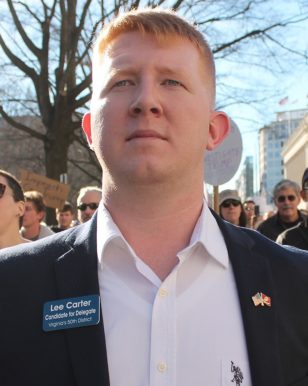
Del. Lee J. Carter
A Marine veteran and two-term state delegate who represents most of Manassas and part of Prince William County, Carter is the only self-described Democratic Socialist seeking Virginia’s Democratic nomination for governor. “It’s no secret that Virginia is divided, but it’s not red vs. blue. It’s the haves and the have-nots. One side has the lawyers and the lobbyists, but Virginia needs a governor that’ll fight for the rest of us,” Carter wrote in a Jan. 1 tweet announcing his candidacy. Carter was the state co-chair for U.S. Sen. Bernie Sanders’ presidential campaign and co-sponsored a successful bill that caps monthly insulin medical copayments at $50.
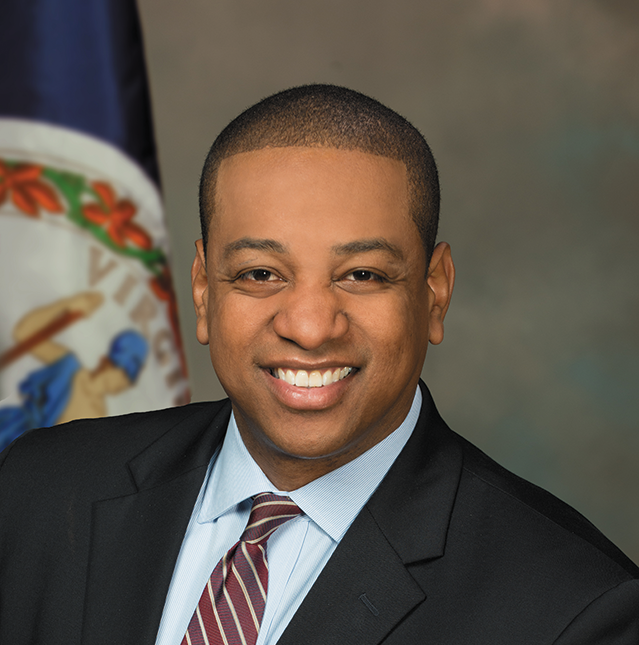
Lt. Gov. Justin Fairfax
Normally, a lieutenant governor would be sitting in the catbird seat when making a bid for the governorship. But Fairfax’s situation isn’t typical — not when the first paragraphs of news stories announcing his decision to run for the commonwealth’s top job inevitably cited two allegations of sexual assault that were made against him in 2019. No charges have been brought, and Fairfax has denied any misconduct, yet the situation has cast a pall over his campaign. The former federal prosecutor’s platform calls for “justice, fairness and opportunity” for all Virginians, with an emphasis on support for Medicaid expansion and police reform. If elected, Fairfax, 41, would be Virginia’s second Black governor. (Gov. L. Douglas Wilder was first, in 1990.) As of the second quarter of 2020, Fairfax’s campaign had raised less than $20,000, according to the Virginia Public Access Project (VPAP).
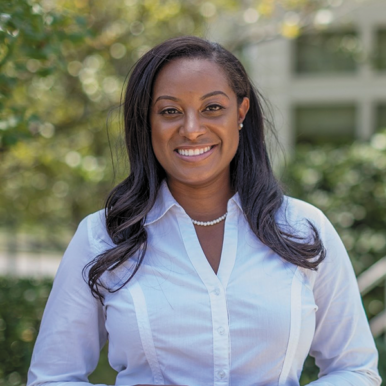
Jennifer Carroll Foy
Foy likes to tell voters about how her grandmother shaped the trajectory of her life. “If you have it, you have to give it,” her grandmother told her, and for Foy, “it” has entailed being a groundbreaker from the get-go. The former state delegate who represented Prince William and Stafford counties was one of the first African American women to graduate from Virginia Military Institute, which is now the subject of a state probe into an alleged culture of racism. Foy, 39, went on to become a magistrate judge and then a public defender. Now, she wants to become the nation’s first Black female governor and she’s serious about landing her party’s nomination. In December, she resigned from the House seat she had held since 2017 in order to focus on her gubernatorial bid. As a delegate, Foy helped get the Equal Rights Amendment ratified and supported the successful effort to expand Medicaid to 400,000 Virginians. She believes in gun safety laws, better pay for teachers and protecting the environment. As of the second quarter of 2020, Foy’s campaign had raised more than $800,000.
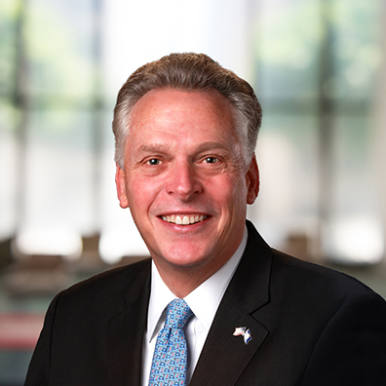
Gov. Terry McAuliffe
Virginia voters scarcely need to be introduced to McAuliffe. The 63-year-old former governor has been a ubiquitous force in national and state politics for 40 years. On the campaign trail in early 2020, President-elect Joe Biden called McAuliffe “the once and future governor.” McAuliffe has built a reputation as a stalwart of his party and a strong advocate of Democratic values, but as an older, white, establishment male, some in the party think it’s time for him to step aside in favor of a new generation of politicians personified by his declared rivals for the Democratic nomination. Still, the multimillionaire’s ability to raise money is legendary, starting with his decision at age 22 to wrestle an 8-foot alligator in exchange for a $15,000 contribution to then-President Jimmy Carter’s reelection campaign. (McAuliffe beat the beast, but Carter lost anyway.) The Washington Post reported McAuliffe had more than $2 million in his campaign war chest when he announced his run in early December 2020.
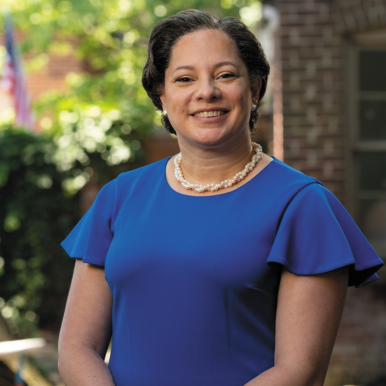
Sen. Jennifer McClellan
McClellan, 48, is a familiar face in Richmond, having spent 14 years in the state legislature, first in the House of Delegates for 11 years and then since 2017 as a state senator for the 9th District, which includes Richmond, Charles City County and portions of Henrico and Hanover counties. A corporate lawyer for Verizon, she has built a reputation as a pragmatist. She was a key player in the ratification of the Equal Rights Amendment, a rollback of abortion restrictions and passing the Virginia Clean Economy Act, which commits the commonwealth to generating its electrical power from carbon-free sources by 2050. Criminal justice reform, health care and education rank high on her agenda. McClellan is partly an establishment figure — her mentor is U.S. Sen. Tim Kaine — but she also can lay claim to being a member of the increasingly diverse left-of-center faction of her party. If elected, she would be the first African American female governor in the country. According to VPAP, her campaign raised close to $500,000 during the first half of 2020.
REPUBLICANS Declared

Sen. Amanda Chase
The first candidate of either party to throw a hat in the gubernatorial ring, the highly controversial Chase, 52, spent much of 2020 as the only formally announced GOP candidate. The far-right state senator from Chesterfield County briefly flirted with running as an independent in December, after the state GOP decided to hold a gubernatorial convention instead of a primary, a move some saw as intended to prevent her from gaining the nomination. But she quickly reversed course, affirming her intention to run as a Republican. A fervent Trump supporter, she called on the president to declare martial law and stay in office after his defeat. The pugnacious senator was kicked out of the Chesterfield Republican Party and refuses to caucus with Senate Republicans. Her opponent, Del. Kirk Cox, has said Chase’s “antics have long grown more than tiresome,” and a GOP senator’s aide formed an anti-Chase political action committee, the Unfit Virginia PAC. Chase is a passionate Second Amendment defender and champion of family values and religious liberties. She opposes COVID-19 restrictions, mask-wearing and mandatory coronavirus vaccinations, tweeting: “I will fight this with everything that is in me — so help me God.” She’s also known for making inflammatory and racially charged statements, such as claiming in a November 2020 Facebook post that the Democratic Party of Virginia “hates white people.” Two of her supporters made headlines after being arrested in November for carrying firearms outside a Philadelphia polling place. As of mid-July 2020, Chase had raised more than $225,000.
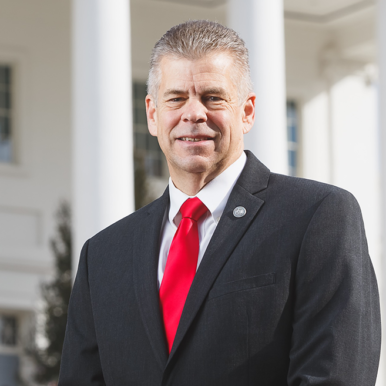
Del. Kirk Cox
Former Speaker of the House Cox has been a force in state politics for more than 30 years. Before the blue tsunami of the 2019 election stripped Republicans of their leadership roles in the state legislature, the representative of the 66th District had served as house speaker and majority leader. “During my leadership tenure, you can point to a Virginia that was very, very well run,” he told a conservative news site, The Virginia Star. Cox, 63, is a traditional conservative: strongly pro-business, pro-law enforcement and anti-abortion. The retired high school government teacher did tread on some GOP toes in 2018, though, when, as speaker, he oversaw the expansion of Medicaid. Still, Cox showed his staying power in 2019 by being reelected in a radically redrawn district that could have turned blue. As governor, Cox has said he would seek to spend $50 million to raise law enforcement salaries. Cox is well-liked among the party stalwarts, and his mild-mannered demeanor could appeal to mainstream voters. In December, former state Sen. Bill Carrico of Grayson County set aside his own 2021 gubernatorial ambitions to endorse Cox, telling The Roanoke Times, “I believe Kirk’s the right man, and I believe he’s the one who can put Virginia forward economically for everyone and bring forth a more safe and secure state.”
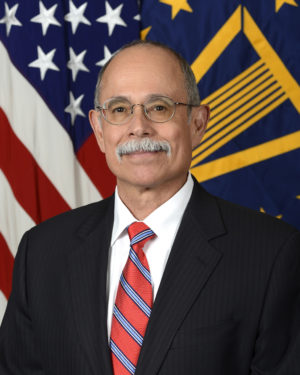
Sergio de la Peña
A Fairfax County resident who served in the Trump administration as deputy assistant secretary of defense, de la Peña is a Mexican native who immigrated to the United States and served 30 years in the U.S. Army, retiring as a colonel. He said in his announcement that he supports President Donald Trump and claims the American dream “is under assault.” In the Department of Defense, he oversaw Western Hemisphere affairs and oversaw the funding of defense cooperation for the U.S. Northern Command and U.S. Southern Command. According to his DOD bio, he was the chief of the international affairs division of the U.S. Northern Command J59, responsible for military to military guidance of training, sales and other activity with Canada and Mexico. He also served in Chile and Venezuela and was an air defense officer, and is an ROTC graduate of the University of Iowa.

Pete Snyder
Following a year of buzz over whether he would enter the race, Charlottesville-area venture capitalist Pete Snyder formally announced on Jan. 27 that he would seek the GOP nomination for Virginia governor. A former Fox News contributor, Snyder made an unsuccessful bid for the GOP nomination for lieutenant governor in 2013 and chaired Ed Gillespie’s unsuccessful 2017 gubernatorial campaign. The William & Mary graduate founded Arlington-based social media marketing firm New Media Strategies and sold it in 2007 to Meredith Corp. for $30 million. He’s now chief executive of Disruptor Capital, a venture capital firm focused on innovative technologies and entrepreneurs. In response to the pandemic, Snyder and his wife, Burson, co-founded the Virginia 30 Day Fund, a nonprofit which provides small, forgivable loans to help small businesses weather the pandemic. The endeavor is separate from political considerations, Snyder says: “This is a time for us to be helping each other.”

Glenn A. Youngkin
Youngkin, 54, resigned his longtime position as co-CEO of Washington, D.C.-based investment firm The Carlyle Group in September 2020 in order to focus on “community and public service efforts.” In early January, the political newcomer declared he was running for the Republican nomination. With an estimated net worth of about $254 million, Youngkin could decide to self-fund his campaign. In an interview with The Washington Post, Youngkin’s campaign manager, Garrison Coward, said, “The political insiders have been smothering Virginians’ best interests with their special interests. Glenn is a breath of fresh air that will bring conservative solutions to everyday problems.”
In summer 2020, Youngkin and his wife launched the nonprofit Virginia Ready Institute to retrain workers idled by COVID-19. Youngkin is a longtime Republican donor, and he attended middle school in Chesterfield County before receiving degrees from Rice University and Harvard Business School. He also is part of the Virginia Tech Innovation Campus Advisory Board, among other nonprofit governing boards. Before joining Carlyle in 1995, he was a management consultant with McKinsey & Co.
Undecided
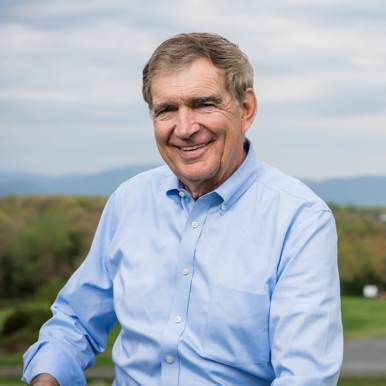
Sen. Emmett Hanger
In September, Hanger created a political action committee, Virginians for a Better Tomorrow, to push for a constitutional amendment on nonpartisan political redistricting. Voters approved the amendment in November. The 72-year-old Hanger, who represents Staunton, Augusta County and other areas of the Shenandoah Valley, has said he will announce whether he will run for governor before the General Assembly session opens on Jan. 13. He has been a member of the legislature since 1982, first as a delegate, then as a senator. “When I started, I considered myself to be one of the most conservative members, and I don’t think my views have changed,” he says. Since then, however, more members of his party have moved “considerably to the right of me,” he says. Being labeled “moderate” used to bother him, but Hanger now considers “moderate” a synonym for “reasonable.” A believer in limited government and fiscal restraint, Hanger has been known to reach across the aisle to get things done. To the dismay of many in his party, he supported the expansion of Medicaid under the Affordable Care Act.
Also considering a run
Princess Blanding, the sister of an Essex County high school biology teacher who was killed by a Richmond police officer during a mental health crisis in 2018, announced in December a third-party bid for governor. An advocate for criminal justice reform, Blanding is running as a candidate for the Liberation Party, a party created following the killing of her brother, Marcus-David Peters. She is a science teacher from Middlesex County.
Mike L. Chapman, a three-term Republican Loudoun County sheriff, is openly considering a run to push back against what he calls “a false narrative” about law enforcement. He adamantly opposes citizen oversight bodies like those greenlighted in 2020 by the General Assembly to investigate police misconduct complaints.
Neil Chatterjee was chairman of the Federal Energy Regulatory Commission before being demoted from the post in November 2020 by President Donald Trump. In May, Chatterjee, a Republican, created a Facebook group pitching a “hypothetical” run for governor. He told Politico he was “just playing around,” but the former aide to Senate Majority Leader Mitch McConnell has not formally ruled out a run.
Pete Doran is a free-market stalwart who chairs the pro-GOP political organization Let’s Win, Virginia! He is the former CEO of the nonprofit Center for European Policy Analysis (CEPA), which advocates for public policy to encourage an economically vibrant, strategically secure and politically free Europe.
Republican U.S. Rep. Denver Riggleman, whose term ended Jan. 3, has formed an exploratory committee to examine a run as an independent after the GOP did not renominate him for his House seat representing the Fifth District, Virginia’s largest geographic congressional district. The one-term congressman was censured by his party for not supporting its positions on spending and immigration, as well as officiating a same-sex wedding and not backing Trump’s voter fraud claims. He’s been a vocal critic of Trump and congressional Republicans.
Related Articles:
Short and … sweet? A look ahead at the General Assembly’s 2021 session
Representing the underdogs: Republican House leader aims to be ‘voice of reason’

















